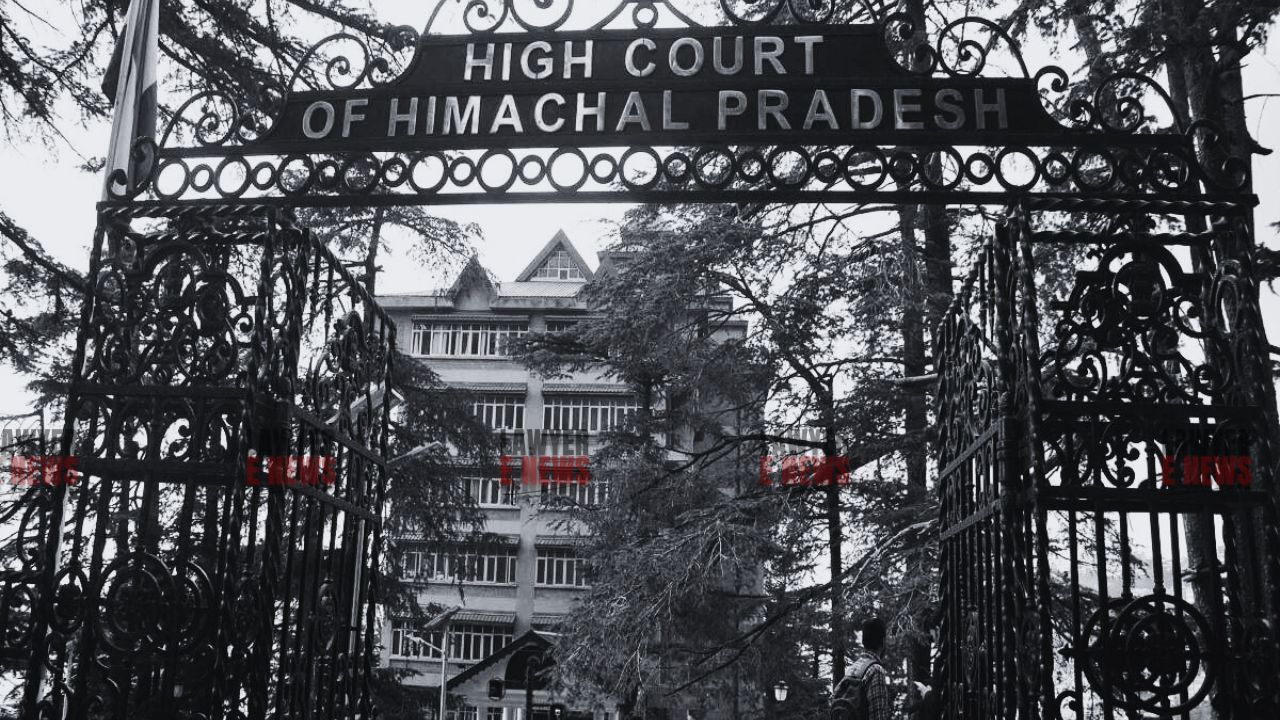-
by Admin
15 February 2026 5:35 AM



On 20th September 2024, the Himachal Pradesh High Court, in Ram Dass v. State of H.P. and Another, quashed FIR No. 38 of 2022, registered at Police Station Sadar, Shimla, for offences under Sections 457 and 380 of the Indian Penal Code (IPC). The court accepted a compromise between the accused (Ram Dass) and the complainants, stating that the offences were private in nature and did not impact the public at large. The petition was allowed under Section 482 of the Criminal Procedure Code (CrPC), which grants inherent powers to the High Court to quash criminal proceedings in the interest of justice.
The FIR in question was registered against the petitioner, Ram Dass, for allegedly committing house trespass and theft under Sections 457 (lurking house trespass or house-breaking) and 380 (theft) of the IPC. The accused and the complainants later entered into a compromise, with the complainants voluntarily stating that they had settled the dispute and had no objections to the quashing of the FIR. The petitioner approached the High Court under Section 482 of the CrPC, seeking quashing of the FIR based on this compromise.
The State opposed the petition, arguing that the offences involved, particularly house trespass and theft, affected public interest and should not be quashed merely on the basis of a private settlement. However, the petitioner contended that the dispute was personal and did not concern the public at large, making it eligible for quashing under the court's inherent powers.
The primary issue was whether the offences under Sections 457 and 380 IPC could be quashed based on a private compromise between the parties, considering the State’s argument that the offences affected public interest.
Whether the High Court could exercise its inherent powers under Section 482 of CrPC to quash the FIR, despite the offences being non-compoundable under Section 320 of the CrPC.
The court had to consider various Supreme Court decisions on the quashing of FIRs in cases of private disputes and evaluate whether the present case fit within the scope of such precedents.
The court concluded that the offences under Sections 457 and 380 IPC were private in nature and did not involve a serious impact on society. Relying on prior judgments, the court held that where the offences primarily affect private individuals and not the public at large, the FIR can be quashed if both parties agree to compromise.
"The fact that the Court had quashed the FIR for the commission of an offence punishable under Section 452 IPC shows that house trespass is considered to be a private offence and not a public offence," the court remarked.
The court referred to landmark Supreme Court rulings, including Gian Singh v. State of Punjab (2012) and Narender Singh v. State of Punjab (2014), which allowed for the quashing of FIRs in cases where the offences were predominantly private and the chances of conviction were remote. The court also noted that such powers must be exercised judiciously, particularly where the dispute has been amicably resolved.
"The Supreme Court has consistently held that where a criminal case is overwhelmingly of a civil nature, and a compromise is reached, the continuation of criminal proceedings would result in an abuse of process and cause injustice," the court noted.
The court reiterated that the inherent powers of the High Court under Section 482 CrPC are distinct from the powers of compounding offences under Section 320 CrPC. The High Court can quash criminal proceedings if it finds that continuing them would serve no public interest and would only cause unnecessary harassment to the accused.
"Section 482 preserves the inherent powers of the High Court to prevent abuse of the process of any court or to secure the ends of justice," the court observed, relying on the principles laid down in Parbatbhai Aahir v. State of Gujarat (2017).
The court cited previous cases from the Himachal Pradesh High Court, including Musharaf v. State of H.P. (2022), Harsh Anand v. State of H.P. (2020), and Chaman Lal v. State of H.P. (2023), where FIRs for similar offences were quashed based on compromises between the parties. Judicial consistency, the court held, required that the present petition be allowed under the same principle.
"Following the principle of judicial consistency, the present petition is similarly allowed," the court concluded.
The Himachal Pradesh High Court quashed FIR No. 38 of 2022, registered against Ram Dass for house trespass and theft under Sections 457 and 380 IPC, based on a compromise between the parties. The court found that the offences were private in nature, and continuing the proceedings would serve no public interest. The inherent powers of the High Court under Section 482 CrPC were invoked to quash the FIR and all consequential proceedings.
Date of Decision: 20/09/2024
Ram Dass v. State of H.P. and Another
